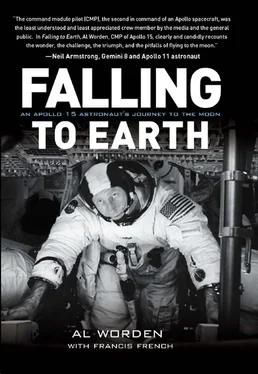Grandpa was part of a community of poor but supportive farmers. At harvesttime, if another farmer was shorthanded when the time came to thresh wheat and oats or to raise a new barn, he could count on Grandpa. I wanted to be just like my grandfather when I grew up. He had no money to speak of, but acted as though he was a rich man. And he was. Rich in contentment, he was happy with who he was and what he did. I especially admired his independence. He was very social and loved by everyone, but he didn’t need anyone else to be happy. He just—was.
I loved being with Grandpa. My own father had a more difficult time on the farm. Living on that farm was his idea of hell. I later learned how depressed he’d been by the forced move. He hated farm work, and it showed. My grandparents noticed, and grew increasingly unimpressed with his rejection of their farming life. I was sad to hear stories of my father so out of his element and unhappy. Circumstances had parachuted him into my mother’s family without any support. They had grown up with one set of rules in life. His were entirely different.
My father looked typically Dutch—pale, with white-blond hair in a brush cut. He was six feet tall and chubby all his life. The whole town of Jackson knew him, and what did they call him? Tiny. It was a loving tease. He was unremarkable, the kind of man who could blend into a crowd: pleasant to everybody and comfortable to be around. This softhearted, jovial guy always had a twinkle in his large blue eyes.
Orphaned at the age of four when his parents died in a car accident, my dad was raised by his gruff Uncle Dick on a pig and apple farm in northern Michigan. He’d had enough of farm life by the time I was born. Growing up, I saw him as a gentleman farmer, the type who owns a farm but never works on it. Dad was more technically oriented; his life revolved around electronics. He owned a small repair shop in Jackson and was good at fixing radios. In fact, my dad built the town’s first radio station, and worked for a while as the late-night talk host. He was curious to see how far he could boost the radio signal from the station, and had his answer one day when he received a postcard from a listener—in Australia.
My father’s electrical work earned the family a little money, and he enjoyed his machines and the slow, careful work of repairing. A bit of a dreamer, he had lots of ideas that he wanted to develop. He even designed and built a tape recorder and player long before they were commercially available, but because he tinkered away by himself, nothing ever came of it.
Before I was born, Dad had helped to install the projectors and sound system in Jackson’s big movie theater downtown. While he worked as the projectionist, my parents lived in an apartment over the theater. This was the kind of life he enjoyed: studying electronics and taking exams. After he spooled up a projection reel, he had a precious half hour of undisturbed study time before he needed to change it over. But then came the Depression. People in Jackson gave up luxuries like movies. To my father’s despair, the movie theater shut down for many years, forcing him back into farming.
My father didn’t ask too much of us kids. He would discipline me on occasion, but it wasn’t his nature. My mother was the strict one. She ran the family, while Dad worked in town. Short and dark-haired, she was a loving, supportive parent. Yet she could also be sharp edged, sharp tongued, and demanding. This wasn’t a bad thing. She had high expectations and she pushed us kids hard. When her dark eyes fixed on me, I immediately thought about what I might have done wrong.
Considering her tough upbringing, I could hardly blame her. She was a farm girl, reared in the country with no modern amenities. She grew up a hardy pioneer. The Depression was just another kick in the teeth. No matter how much her life improved after that time, she always thought, dressed, and acted the same. Her hair was tied back or cut short, her clothes practical, and she met the world head on. Life is hard, she would tell us—it takes a lot of work to get someplace in life, and you kids will start right now .
My mother was working in Jackson as a secretary when she met my father. I’m told my father was kind of a dandy. He strutted around in white suits and changed his shirt about three times a day. Why that pretty young woman chose him, I’ll never understand. I do know my mother thought she could change him into a hardworking farmer, pitching hay ten hours a day. That never happened because he never stopped being a city guy.
When the movie theater reopened at long last and my father had steady paid work again, he gave his paycheck right to my mother. She took care of all the money. That arrangement worked well; otherwise he’d fritter it away on electronic playthings. She, on the other hand, squeezed every penny until it was paper, and we did very well by it.
She’d frequently be annoyed when Dad wouldn’t do farm work and other chores. But he just breezed through it in his easygoing way and rarely lost his temper. Over time, however, the nitpicking would wear at him until he’d had enough, so about once a year he’d blow sky high. That blowup would end the nitpicking for six months or so. They never seemed like a particularly romantic couple; their marriage felt more like a business arrangement. But then again, those six kids had to come from somewhere.

My sisters, Carolyn (left) and Sally, sit on each side of me around 1934, sheltered by our father.
Every summer, whether my father liked it or not, the family would leave Jackson and go to live with our grandparents and work on their farm. Using the stones that once littered his fields, Grandpa had built a farmhouse. Without electricity, they relied on kerosene lanterns. For fresh water, they dug their own well and also captured rainwater. Vegetables were stored in their hand-dug root cellar. They truly lived off the land. And on a winter’s night when we were visiting, I had to think very hard—picturing the deep snowdrifts outside—about how badly I needed to visit the outhouse.
The grandkids’ bedroom, summer and winter, was the attic. Our beds were tucked under the eaves, and the heat from the house furnace would rise up to us, cozy under piles of blankets. On stormy evenings we would drift asleep to the sound of rain on the metal roof, and awake in the mornings to the clatter of my grandmother lighting a fire in the wood-burning stove and, soon, the delicious aroma of baking bread.
Grandpa Fred grew corn, oats, hay, and wheat, but those crops were mostly to feed the animals. He earned a little money growing potatoes, beans, and cucumbers, but basically he took care of his cows, and the cows took care of him. Most of the cash came from selling cream to a local dairy. I would ride with him in his ancient Chevrolet coupe when he needed to take his produce to town, and he would shut off the engine to coast down the last hill into town to save gas. Finances were that tight.
He saved more money by fixing everything himself. Grandpa had his own little blacksmith’s forge in a separate shed down by his barn. If he needed a new implement, or to replace steel rims on his horse-drawn mower, he’d crank up the fire and make it himself.
He used that mower to cut hay; all the work was done by animal power or by hand. As the horses pulled the mower, the wheels turned a gear and moved blades that cut the grass. I loved to help him, and frequently did it on my own. After we’d cut the grass, we’d hitch the horses to a large hay rake and pull the rake across the field again, time after time, shaping the hay into long parallel lines called windrows. Then it was time to go back down the lines with a pitchfork, making bigger piles. Finally, while the horses slowly pulled, we’d use the pitchforks to shovel the hay up into a wagon.
Читать дальше













